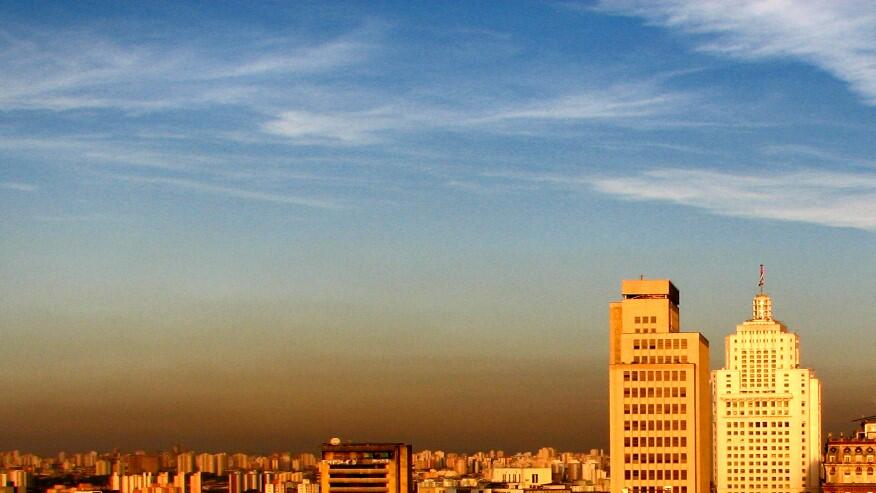Solid waste management constitutes a major public health and environmental concern. A bad management of this problem may lead to consequences more hazardous than we think. In fact, gases emitted in the ambient air from open cells and landfills contribute to decrease quality of life due to their harmful impacts on the atmosphere not only at the local scale in urban areas but also at the regional scale in contributing to the green house effect and at the global scale reaching the Ozone layer. It is known that the environmental impact of a source gas emitted to the atmosphere depends on the lifetime and the chemical and physical properties of the gas. It is important to note that once released into the atmosphere, gases emitted from solid wastes are removed by various transformation pathways such as photolytic processes under solar radiation, heterogeneous reactions by wet and dry deposition and gas phase chemical reactions. Gases emitted from solid wastes belong to two main categories of pollutants: i) the highly reactive pollutants (short-lived) that are generally not well-mixed throughout an atmospheric region and whose concentrations are largest near the source regions altering thus the air quality close to the emission sources and contributing to the green house effect ii) the long-lived pollutants whose concentrations do not depend on the geographical location of their emission to the atmosphere and that are consequently transported to the global scale reaching the stratosphere and contributing thus to the depletion of ozone layer. Among gases released from solid wastes and reported in the literature, Volatil Organic Compounds (VOCs) constitute a large family of carbon-containing compounds detected close to open cells and landfills. VOCs are generated as intermediate and end products from the decomposition of both organic wastes such as food and chemical wastes such as solvents and rubber. Some of these compounds are toxic and/or carcinogenic. These compounds are in general short- lived pollutants with lifetimes varying from few minutes to few months. VOCs which by themselves are negligible greenhouse compounds have an important indirect effect on climate by increasing the abundances of Green House Gases (GHG) such as Ozone and methane. Furthermore, VOCs act as precursors for Secondary Organic Aerosols (SOA) that are known to have harmful impacts on respiratory systems and they also lead to the formation of other VOCs sometimes more toxic than the mother compound such peroxyacetyl nitrates (PAN). The release of VOCs in the ambient air is associated to odour emissions coming from a mixture of odorous VOCs such as aldehydes, ketones, alcohols and nitrogen and sulphur-containing compounds as well. Besides, other family of VOCs emitted from solid wastes has been identified. This family belongs to halogenated VOCs such as Chloroflourocarbons CFCs that are released from domestic and commercial wastes including refrigerant liquids, aerosols cans, foams, propellants and adhesives. Even when released in small quantities, CFCs are effective at destroying the ozone layer since these pollutants, in contrast to VOCs cited above, are long- lived gases with lifetimes reaching few years. Ultimately, to achieve optimized solid waste management, policies must be implemented in the light of scientific, social, economic and political considerations. From their side, scientific are urged to make further progress in the matter by carrying on and gathering studies on atmospheric modelling, laboratory experiments and observations in order to more assess the impacts of solid wastes emissions on the environment and human health.











